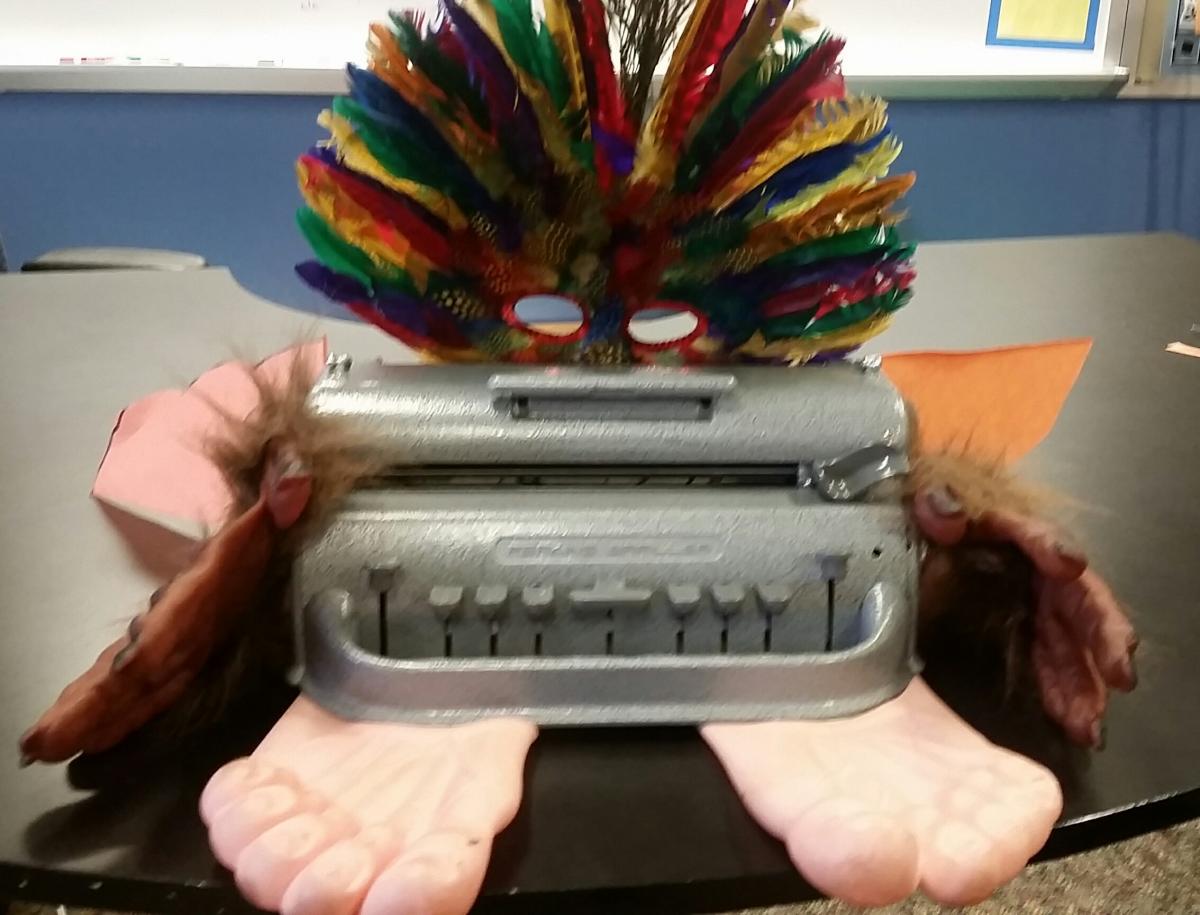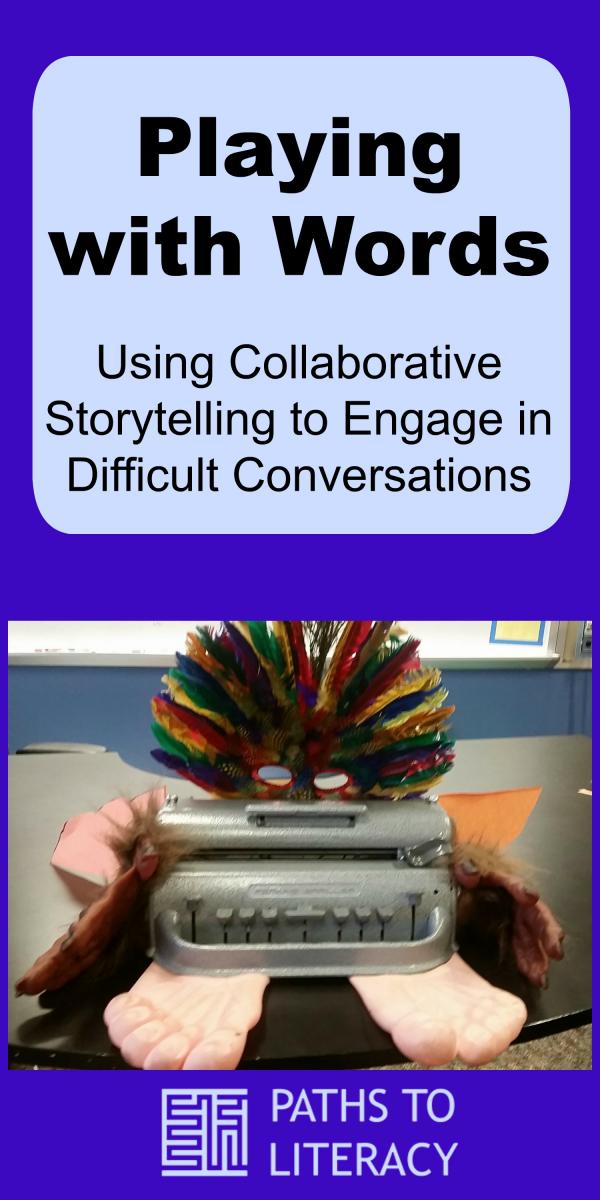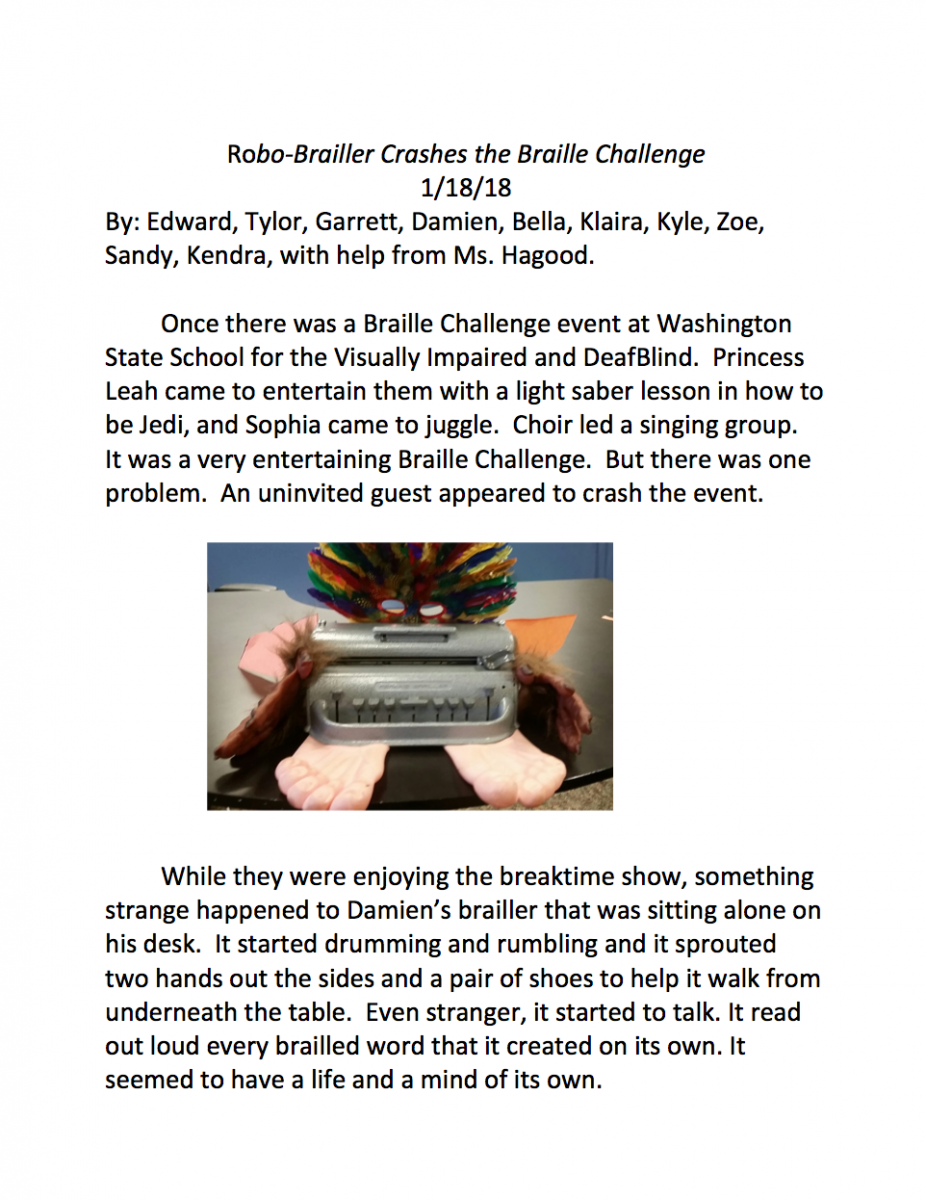Playing with Words: Using Collaborative Storytelling to Engage in Difficult Conversations
 Through the years, I have co-created many stories with many kids—some with autism, some who were blind, some who were deafblind, and some who were just Interesting Kids (without any diagnoses at all!). Sometimes we just make up a story together, other times we try to enact it, or build props to support the process, lately we’ve been trying to turn some of the stories into youtube videos or podcasts.
Through the years, I have co-created many stories with many kids—some with autism, some who were blind, some who were deafblind, and some who were just Interesting Kids (without any diagnoses at all!). Sometimes we just make up a story together, other times we try to enact it, or build props to support the process, lately we’ve been trying to turn some of the stories into youtube videos or podcasts.
Storytelling Groups
I want to share this recent story that was written with a group of students at Washington State School for the Blind. I was assigned to run a storytelling activity which kids could choose to attend for 30-45 minute time frames between events at a Braille Challenge event, a competitive activity which required intense concentration. Ten students contributed to this story, in three separate groups which met sequentially. All of the students were middle school or secondary students, except for a seven year old visitor who attended the Braille Challenge and enjoys creative storytelling, with a special interest in fairies. The spirit of play was pervasive, as the students relaxed into this imaginative scenario, in which a braille-writer comes alive, crashing a Braille Challenge event, going to “Braille Jail”, escaping, experiencing a sudden loss of vision, and getting married to a sighted character from Batman, Harley Quinn. Everyone had a chance to insert their favorite characters and play scenarios, and they were so delighted with the final product! I am especially interested in the themes that emerged in this story---
- The use of humor and creativity to diffuse anxiety
- Inclusion/ Exclusion (the idea of “crashing an event”)
- Escape (a common theme in one of our students’ lives and other stories)
- Having “superpowers” vs. being “normal”
- Causes of vision loss and reactions to it—the robo-brailler’s vision loss reflects one student’s experiences with glaucoma
- Dependency issues and insecurities around relationships experienced by people who are blind
Opening the Door to Important Discussions
As I have shared this completed story with other groups at the school, including students with autism, it has opened the door to some important discussions--a door which has been hard to open in more didactic, instructional group discussions. Some examples include:
- Understanding and describing their own vision loss
- Self-awareness and acceptance of their own blindness—one student wanted to omit the word “blind” from the name of the school, because she “hates that word”, and changed it in this story
- Thoughts on whether relationships would be better with sighted or blind partners
- Experiences of being excluded, and how that feels. “Crashing” the party and later the wedding might be ways to empower the students in their play-based story
- Perspective-taking in recognizing peers’ interests—guessing who might have added specific characters or events
- Understanding of figurative and humorous uses of language (e.g. “crashing a party,” “pulling your leg,” “welcoming me with open keys”)


